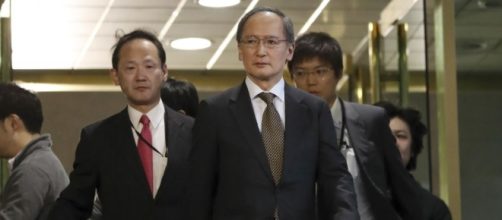Defense Minister Tomomi Inada said in a trilateral meeting in Singapore with the United States and South Korea that a defense system must be set in place by the three countries to pressure North Korea. The Japanese secretary reiterated the importance of an international move to tighten the noose on Pyongyang's missile and nuclear programs to avoid war.
What does Japan mean by a trilateral defense system?
Japan aims to enhance its security by conforming to drills and military exercises with the United States and South Korea. These exercises will improve missile detection capabilities, anti-submarine warfare, and missile interception.
For Japan, it is important for the three countries to work out a viable defensive plan that will ensure the safety of each country from an attack coming from North Korea.
The belligerent state had continuously issued threats after threats at Japan, South Korea, and the United States. The gravest is the threat of annihilation of the entire American continent with a rain of nuclear weapons. Though the threat is still unrealistic, a single nuclear attack on a city like Tokyo or Seoul will issue in a major war which may drag Russia and China in the process.
Sharing of military technologies is also part of this trilateral defense, which Japan looks forward to as it begins to revamp its army into an active force.
Japan is also to complete its development of a new missile, the SM-3 Block IIA, which can intercept incoming missiles in altitudes up to 1,000 kilometers. Japan plans to install a new land-based Aegis system that will greatly increase the country's air defense system.
How will the United States support Japan's plea for trilateral defense?
The United States Navy have deployed three carriers to support the pressure on North Korea. Two of which, the USS Carl Vinson and the USS Ronald Reagan are in the Korean peninsula conducting drills with both Japan and South Korea. The USS Nimitz is steaming its way to the Pacific to join the show of force.
The United States had just recently conducted a successful test on its ICBM interception capability, and it showed that the current system could shoot down incoming ICBMs.
However, the main hindrance to crushing North Korea is the continued support of China.
Though Beijing states its condemnation of North Korea's ballistic programs, it hasn't done any substantial move to pressure Pyongyang to stop. China it seems is the only barrier that is protecting North Korea from falling on its back.


